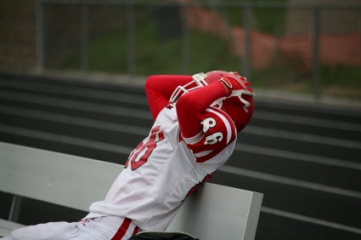As the 2013 high school football season enters the home stretch, with teams fighting to stay alive in the playoffs, or preparing for traditional end-of-the-season games on Thanksgiving morning, the risk of concussion is an ever-present concern.

But now is not the time to put winning ahead of safety.
Even in the best of times, studies show that high school football players face what one recently called a ‘culture of resistance' to reporting to sideline personnel that they are experiencing concussion symptoms.
As the 2013 high school football season enters the home stretch, with teams fighting to stay alive in the playoffs, or preparing for traditional end-of-the-season games on Thanksgiving morning, the risk of concussion is an ever-present concern. But now is not the time to put winning ahead of safety.